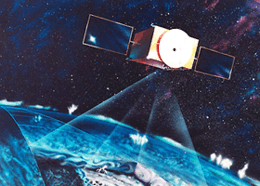KELT-4Ab
| Exoplanet | List of exoplanets | |
|---|---|---|
| Parent star | ||
| Star | KELT-4A | |
| Right ascension | (α) | 10h 28m 15.011s |
| Declination | (δ) | +25° 34′ 23.5″ |
| Distance | 685 ± 33[1] ly (210 ± 10[1] pc) | |
| Spectral type | F | |
| Orbital elements | ||
| Semi-major axis | (a) | 0.04321 ± 0.00085[2] AU |
| Eccentricity | (e) | 0.03 ± 0.021[2] |
| Orbital period | (P) | 2.9895933 (± 4.9e-06)[2] d |
| Inclination | (i) | 83.11 ± 0.057[2]° |
| Physical characteristics | ||
| Mass | (m) | 0.878 ± 0.07[2] MJ |
| Radius | (r) | 1.706 ± 0.085[2] RJ |
| Discovery information | ||
| Discovery date | 2015[3] | |
| Discoverer(s) | KELT-North | |
| Discovery method | Transit | |
| Discovery status | Published | |
KELT-4Ab is an extrasolar planet that orbits the star KELT-4A, in the star system KELT-4. The planet is approximately 685 ly (210 pc) away in the constellation of Leo.[1] The planet was discovered by the Kilodegree Extremely Little Telescope (KELT).
Planet
The exoplanet was discovered by transit and is a Hot Jupiter planet orbiting a star in a triple star system, KELT-4. It is the fourth planet found in such a system.[4] As KELT-4A is the brightest host (V~10) of a Hot Jupiter in a hierarchical triple stellar system found so far researchers expect it may be useful in learning more about inflated planets.[3][5]
Star system
KELT-4 is a triple star system. KELT-4BC is a binary star system subcomponent of the triple, 328 ± 16 AU (4.91×1010 ± 2.4×109 km; 3.05×1010 ± 1.5×109 mi) away from KELT-4A and the projected separation between KELT-4B and KELT-4C is 10.30 ± 0.74 AU (1.541×109 ± 111,000,000 km; 957,000,000 ± 69,000,000 mi).[3]
See also
- Gliese 667 Cc, a planet in a triple star system
- KELT-2Ab, a previous planet discovered by the KELT survey, in a binary system
- KELT
References
- 1 2 3 "Planet KELT-4A b". Open Exoplanet Catalogue. Retrieved 2016-04-02.
- 1 2 3 4 5 6 "Planet KELT-4A b". The Extrasolar Planets Encyclopaedia. Retrieved 2016-04-02.
- 1 2 3 Eastman, Jason D.; et al. (2016). "KELT-4Ab: An Inflated Hot Jupiter Transiting The Bright (V ~ 10) Component Of A Hiearchical Triple". The Astrophysical Journal. 151 (2). Bibcode:2016AJ....151...45E. arXiv:1510.00015
 . doi:10.3847/0004-6256/151/2/45.
. doi:10.3847/0004-6256/151/2/45. - ↑ Bob Yirka (1 April 2016). "Planet with triple-star system found". Phys.org. Retrieved 3 April 2016.
- ↑ Nola Taylor Redd (31 March 2016). "New Alien Planet Boasts Rare Triple Suns". Retrieved 2 April 2016.


